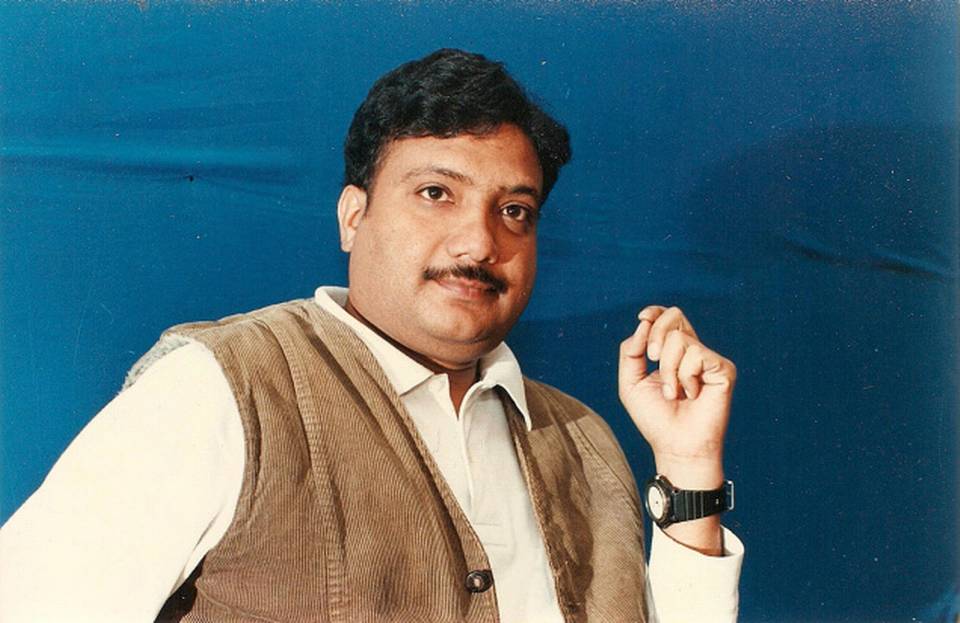NEW DELHI :

Mustajab Malik’s short film “Sir Syed Ahmed Khan” is quite relevant at a time when media circles are abuzz about a possible Bharat Ratna for him.
Many times adverse conditions bring out the best in a human being. So was the case with Sir Syed Ahmed Khan, a visionary and educationist, whose single greatest contribution among others to the posterity stands in the form of Aligarh Muslim University (AMU), the renowned centre of learning.
The 30-minute documentary “Sir Syed Ahmed Khan” is a part of the series “Charagh-e-Hind” directed by Mustajab Malik that traces his life highlighting several important aspects of his personality. “The objective of the series is to inspire the Muslim youth and enable them to change their mindset from ‘we have got nothing’ to ‘we must contribute’,” explains Mustajab, a veteran theatre person. Virendra Vashistha essays the role of Sir Syed and the script is written by Dr. Mohammad Aleem. Born on October 17, 1817 in Mughal nobility, Sir Syed after education joined the civil services. The First War of Independence in 1857, when he was munsif in Bijnor, had a profound impact on his life. Despite suffering personally as many of his family members were either killed or missing, he ensured protection to the women and children left by the British for safekeeping.
“Sir Syed was aware that the 1857 events reflected dissent on the part of Indians and that they were not well prepared for it,” comments historian, Prof. S.M. Azizuddin in the film. “An Essay “On The Causes Of The Indian Revolt” in 1859, the English translation of his discourse, was widely debated in the English Parliament leading many members to demand action against him.
Instead mourning the death of his loved ones, the educationist was deeply hurt by the repercussions on his community and nation. He decided to serve and provide hope in the time of despair. “When Muslims were being targeted and their confidence was at the lowest ebb, he stepped in to guide them in tune with the changing international environment,” remarks Dr. Khwaja Ekramuddin, an Urdu scholar, in the documentary. For achieving that Sir Syed identified knowledge and science as the prime tools and promoted Western style scientific education. He founded a modern madarsa in Moradabad and Ghazipur and the Scientific Society of Aligarh to instil scientific temper apart from having several scientific papers translated into Urdu.
Sir Syed’s meeting with Mirza Ghalib to write the foreword of his edition of Abul Fazl’s Ain-e Akbari, proved a turning point for him. The poet asked him to forget the past and concentrate on current developments and take into account the galloping progress in the West thereby turning him towards social reform.
During his stay in England for nearly two years from 1869 he visited several educational establishments and learning centres inspiring him to replicate them in India. This led to setting up Muhammadan Anglo-Oriental College in 1875. “Educating Muslims meant taking India forward,” comments Pradeep Saxsena, a Hindi scholar. In this cause he was helped by several Hindus in cash and kind. Besides seeking funds, Sir Syed also staged plays to espouse the cause. In 1920, 22 years after his death, it became AMU. The institution enrolled a large number of Hindu students and Babu Iswhari Prasad is among the first batch of graduates.
Sir Syed was swayed by all the British did. “He wanted their help and at the same time criticised them as proved by his essay on events of 1857. Besides he also rebutted the allegations made by Sir William Muir in his book “Life of Mahomet” in writing,” says Mustajab adding “he did not take to the streets protesting or led agitations and instead adopted the civilised method.”
The film highlights Sir Syed’s scholarship by informing the viewers of his 1846 book “Athar-al-Sanadid” which documents the Delhi monuments. “It was a first- of-its-kind attempt. In fact this authoritative work which cannot be ignored by anyone studying Delhi monuments,” comments Syed Ali Nadeem Rezavi, a historian shown in the documentary.
source: http://www.thehindu.com / The Hindu / Home> Friday Review / by S. Ravi / January 08th, 2015








